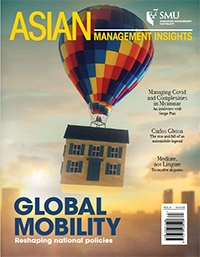
Volume 08 Issue 2 | Published on 16 Nov 2021
Global Mobility Reshaping National Policies
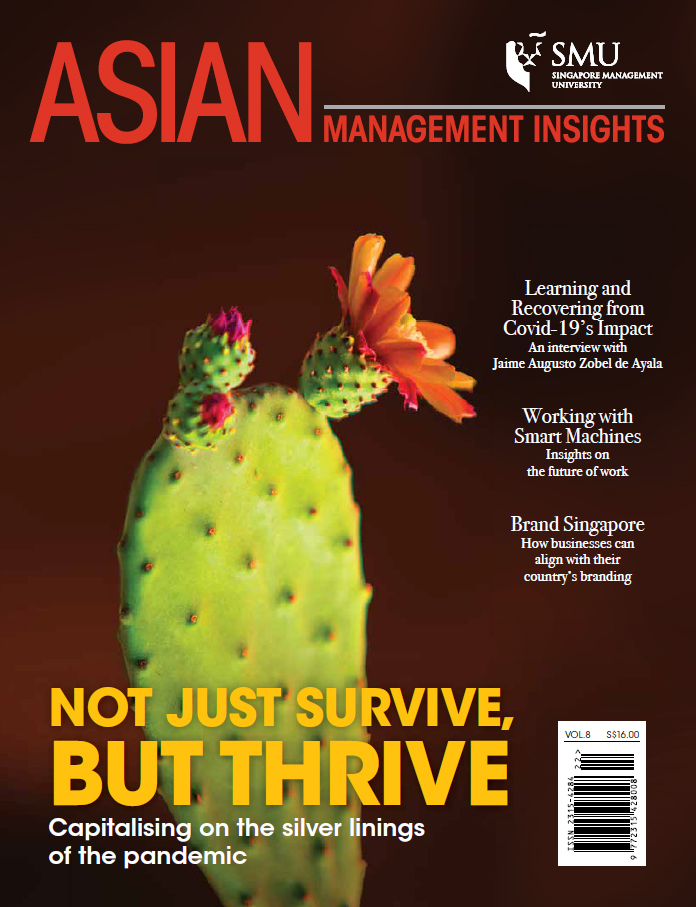
Volume 08 Issue 1 | Published on 12 May 2021
Not Just Survive, But Thrive
- Technology and Sustainability: The New Business Playing Field [PDF | HTML]
Two topics that have consistently cropped up in conversations among business leaders during the pandemic are technology, in the context of the pervasiveness and quickening pace of digital transformation, and sustainability, especially how we should be doing business without harming the environment and society.

Volume 07 Issue 2 | Published on 18 Nov 2020
COVID-19 Impact on the Global Economy
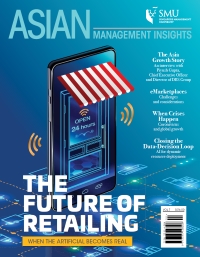
Volume 07 Issue 1 | Published on 03 Jun 2020
The Future of Retailing
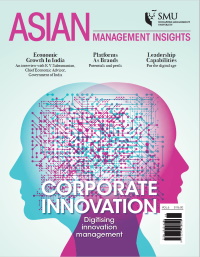
Volume 06 Issue 2 | Published on 25 Nov 2019
Corporate Innovation
- Building customer-centric brands in Asia: How to compete globally [PDF | HTML]
One crucial factor that would differentiate winning businesses from the others is the equity of a strong brand. They must learn to compete globally, sustain competitiveness, and master customer loyalty by building customer-centric brands.
- From bitcoin to blockchain, and back again [PDF | HTML]
In the context of the current FinTech revolution, it remains to be seen how the wealth of knowledge on new technologies and business models in the area of finance can effectively and efficiently drive change and seize the new opportunities being created in the vast and fast-paced world of digital and crypto-assets.
- Infrastructure in Asia: The reality, the challenge, the opportunity [PDF | HTML]
While the urgency to build and improve infrastructure is always imminent, investing in it is a high stakes game for emerging countries. Investments these countries make should be well-prioritised to maximise the economic winds that fill their sails.
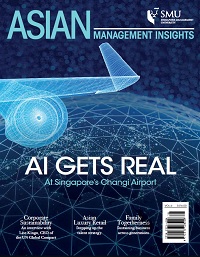
Volume 06 Issue 1 | Published on 27 May 2019
AI Gets Real
- Profit, People and Planet [PDF | HTML]
On behalf of the Editorial Board of Asian Management Insights, its authors and readers, I would like to thank our outgoing Editor-in-Chief, Dr Philip Zerrillo, who founded the magazine and invested significant efforts to advance its profile these past five years.
- AI gets real at Singapore's Changi Airport (Part 1): A learning journey [PDF | HTML]
Ranked as the best airport for seven consecutive years, Singapore’s Changi Airport is lauded the world over for the efficient, safe, pleasurable and seamless service it offers the millions of passengers that pass through its facilities annually.
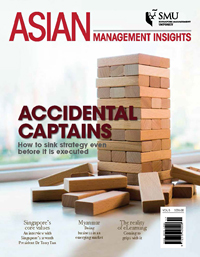
Volume 05 Issue 2 | Published on 11 Dec 2018
Accidental Captains
- Pride and protectionism: U.S. trade policy and its impact on Asia [PDF | HTML]
Many of the trade policies of the United States President Donald Trump’s administration are aimed at addressing the perceived adverse impact of trade on the country’s manufacturing employment, and improving trade deals the President sees as not being in U.S. interests.
Volume 05 Issue 1 | Published on 30 May 2018
The Changing Face of Family Business
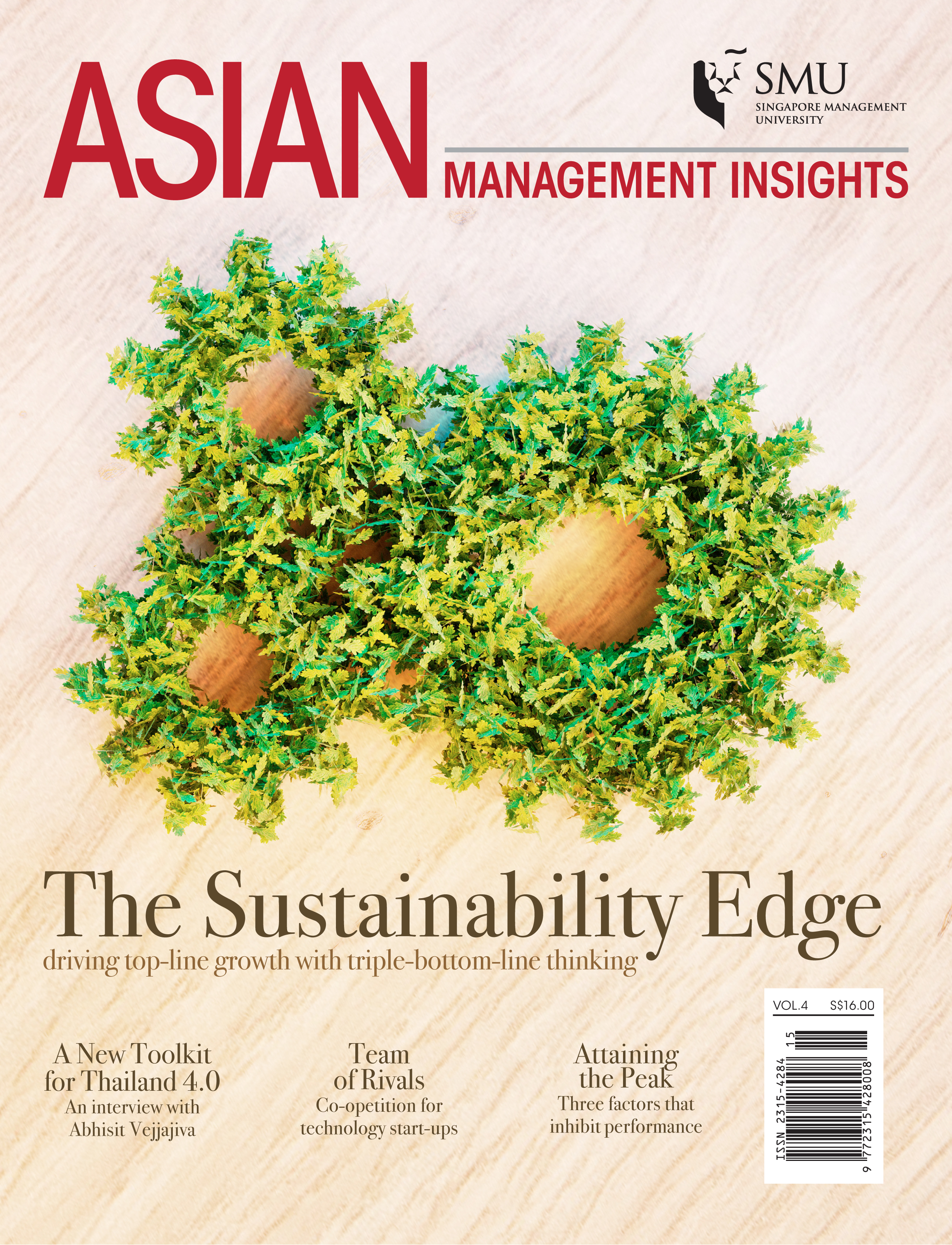
Volume 04 Issue 2 | Published on 28 Nov 2017
The Sustainability Edge
- From rags to riches: Following the East Asian blueprint by governments and firms [PDF | HTML]
In East Asia, the quintessential roadmap for progressing from third world to first, and its approach towards development, has yet to catapult would-be tigers in other emerging markets to the same levels of prosperity.
Volume 04 Issue 1 | Published on 22 May 2017
Navigation Innovation
- Why Every Manager Needs a Sponsor [PDF | HTML]
What do successful managers have in common? The truth is—apart from being great in their jobs, many successful managers often credit their success to someone, somewhere along the way—who not only gave them a pivotal career break, but also pushed them, inspired them and helped them grow.